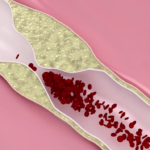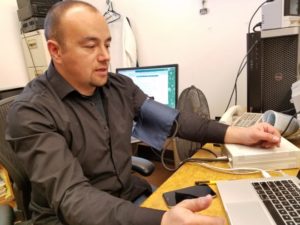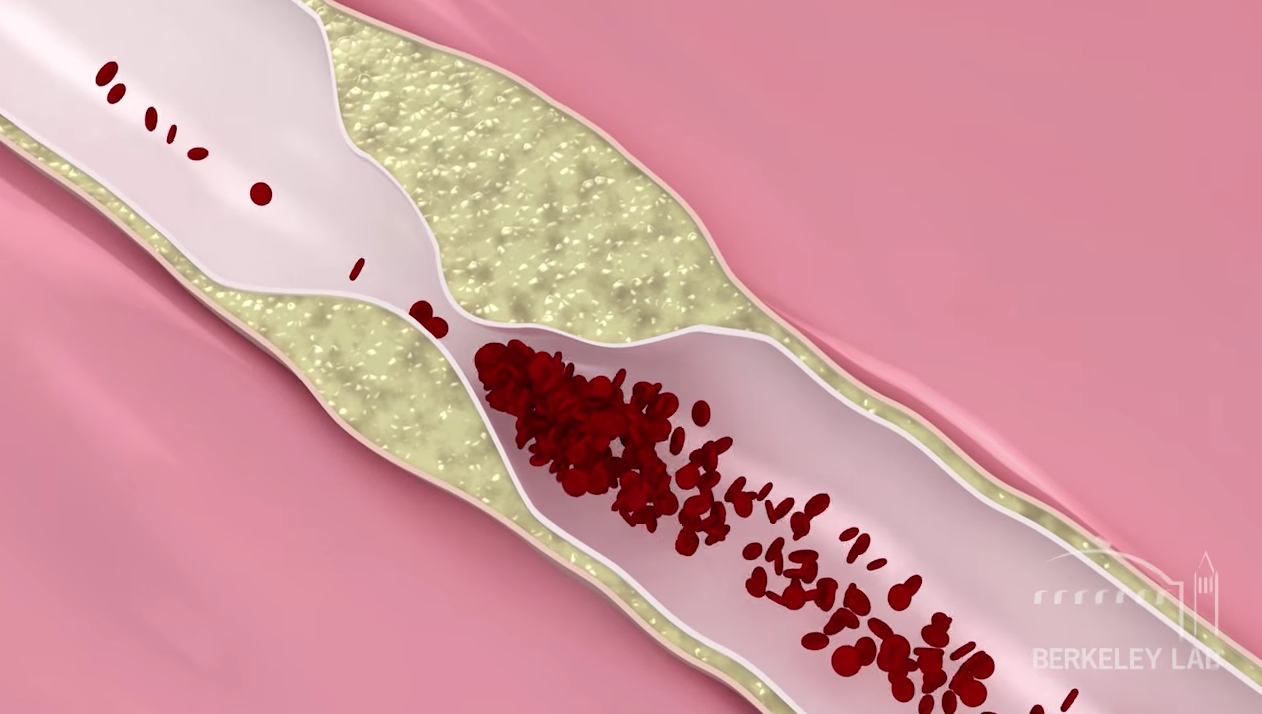 What if checking the state of your arterial health were as simple as monitoring your blood pressure? New technology developed at the U.S. Department of Energy’s Lawrence Berkeley National Laboratory (Berkeley Lab) could soon make detecting the process of plaque buildup in vessels a routine part of a visit to the doctor and, perhaps, home healthcare settings.
What if checking the state of your arterial health were as simple as monitoring your blood pressure? New technology developed at the U.S. Department of Energy’s Lawrence Berkeley National Laboratory (Berkeley Lab) could soon make detecting the process of plaque buildup in vessels a routine part of a visit to the doctor and, perhaps, home healthcare settings.
Jonathan Maltz, a scientist in Berkeley Lab’s Molecular Biophysics and Integrated Bioimaging division, came up with the idea of using sensors to detect the changes in the pulse pressure as blood flows through the brachial artery, a major vessel in the upper arm.  Previous studies have shown a strong correlation between the health of brachial and coronary arteries. “The beauty of this is that it’s really simple and really low-tech,” said Maltz.
Previous studies have shown a strong correlation between the health of brachial and coronary arteries. “The beauty of this is that it’s really simple and really low-tech,” said Maltz.
With initial funding from a Berkeley Lab Innovation Grant, Maltz developed an advanced prototype called the Engevity Cuff, which looks and feels much like a blood pressure monitor. He worked with UC San Francisco (UCSF) chief cardiologist Jeffrey Olgin and his team, who are conducting a major heart health study, to test the device on real patients. Last fall, startup company Lexington Biosciences licensed the technology to help further refine the device and bring it to the medical market. Read more and watch a video about the cuff at Berkeley Lab News Center.




